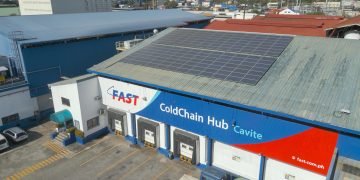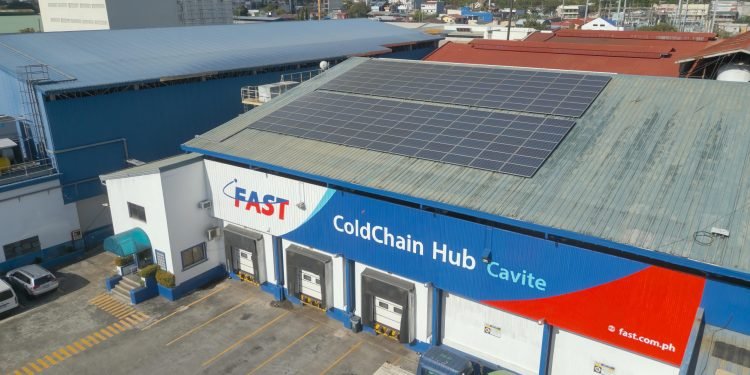By Maria Kalamatas — August 25, 2025
MANDAUE CITY — August 25, 2025. The rhythmic buzz of compressors filled the air as workers unloaded cartons of frozen seafood and vaccine packs. But at Artico Mandaue, one of the busiest cold storage facilities in Cebu, that sound now comes with a new story: every watt of power driving the site is generated from renewable sources.
The operator, Ayala Land Logistics Holdings Corp. (ALLHC), confirmed this week that Artico is now running on a 100% renewable energy supply, making it the first cold storage hub in the Philippines to achieve the milestone.
“Cold storage is one of the hungriest energy users in logistics,” explained Patrick Avila, president of ALLHC, during a press briefing at the site. “By shifting fully to renewables, we’re cutting our carbon load and insulating ourselves from unpredictable energy costs.”
A sector with a heavy footprint
The cold chain has been booming in Southeast Asia, pushed by rising exports of tropical fruit, seafood, and the storage of sensitive pharmaceuticals. But the sector is notorious for its high electricity demand. For many operators, energy bills swallow up 30 to 40 percent of running costs.
In Mandaue, where local factories depend on fast, reliable cold storage, the switch is already seen as a competitive edge. “This is the way forward,” said Jose Tan, a Cebu-based logistics manager who uses the facility for food exports. “Clients in Europe and Japan are asking for lower emissions in their supply chains. This helps us answer that demand.”
What makes it work
The facility’s power now comes from solar farms in Luzon and wind contracts in Visayas, structured through long-term renewable purchase agreements. Engineers estimate the shift will save about 9,000 tonnes of CO₂ each year — equivalent to pulling 2,000 cars off Philippine roads.
More than symbolism
The announcement fits into the Philippines’ national pledge of 50% renewable generation by 2040, but for ALLHC it is also about branding. With sustainability fast becoming a condition in global trade deals, the company wants to position itself as an early mover.
“Companies that ignore this will lose contracts,” warned Dr. Liza Mendoza, an energy policy expert at the University of the Philippines. “This project shows logistics can be green without losing efficiency.”
What’s next
Executives say other ALLHC warehouses will be upgraded within the next two years. If the rollout succeeds, the company could become one of Southeast Asia’s first logistics groups to fully decarbonize its cold storage network.
For the dock workers in Mandaue unloading shipments late at night, the change may be invisible. But for exporters battling rising fuel costs and climate-conscious buyers, the difference could prove decisive.





















